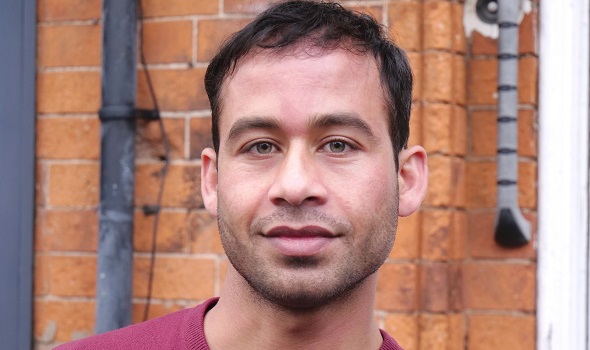Refugee Week: Nas' story
Refugee Week: Nas' story

To mark Refugee Week, our volunteer Silvia Tadiello interviews Migrant Voice ambassador Nas about his journey to the UK from Afghanistan - and his battle to be granted leave to remain.
During Nas’ long battle with the Home Office to have his refugee status recognised, his resilience was what made him keep going. “I think the system is designed like that,” he says, “they refuse applications, they make people tired – and some people give up, some go underground. But I knew my rights and I knew I was telling the truth, so I kept trying.”
Nas was only 14 when he arrived in the UK from his native Afghanistan, after a journey through Iran, Turkey and across Europe, in 2010. His mother paid for smugglers to take him to the UK after it became clear that the Taliban, who controlled the tiny village Nas’s family lived in, wanted to recruit him. His father had been kidnapped for refusing to join the group, and his brother and sister were killed. “You go with this man,” his mother said, handing him over to the smuggler. Nas didn’t know where they were going, but followed his mother’s orders. Seven months later, he arrived in the UK in the back of a refrigerator lorry.
Once in the UK, Nas applied for asylum. He was placed with a foster family and started going to school in the West Midlands. This was the beginning of his second ordeal, one made of refusals and appeals. At first, he was refused asylum but granted a temporary leave to stay until he turned 18; at that point, when he applied again, it continued to get rejected.
The evidence caseworkers expected him to have brought was unrealistic for a 14-year-old boy, Nas says. He lost his Afghan ID during his journey and had no means to prove his age; he had no school certificate from Afghanistan. He also says that caseworkers simply didn’t believe his story, a widespread claim among asylum seekers and charities. And, although the courts did believe his brother and father were killed by the Taliban, he was still refused and told he could go and live in Kabul, a place he had never been to.
The process had a huge impact on his health. “It made me both physically and mentally tired,” Nas says. “In 2018, my case was exhausted, which meant that I had no other choice. All I could do was start from scratch and present a fresh claim.”
After another refusal, he decided to do things differently. He looked for help online and came across Migrant Voice, which put him in touch with Salman Mirza, the charity’s Birmingham Network worker. Salman suggested that Nas start a public campaign. “I said yes, and this is how we started, in 2018. I spoke with journalists, I told my story in schools and universities, I started a petition,” he says.
Within a short period, Nas appeared on ITV, took part in a BBC documentary, and was interviewed by other news outlets. He also worked hard to make his voice heard, sharing his story and his petition with as many people as he could. “I asked people to sign my petition on buses, in shops, even outside of toilets!” he jokes. It now has over 12,000 signatures. The community campaigned with him, even recording a video in support of his right to stay. Nas also held speeches at anti-racism marches in Birmingham and London. “Wherever Salman asked me if I wanted to go [and tell my story], I would go,” he says. Eventually, he was also able to talk with his MP, Steve McCabe, who wrote a letter to the Home Office for Nas.
In October 2018, Nas travelled to Liverpool for his last interview with the Home Office, which lasted over two hours. He had submitted all the material from his campaign as evidence. They asked him all sorts of questions, some of which were upsetting. Finally, in January 2019, he received a letter. “It was Saturday and I was at home, and I remember hearing the sound of a letter coming through the letterbox. I opened it and it said that I had been granted leave to remain. I was over the moon, it was unbelievable. I fought for it for ten years.”
Nas is sure that the public campaign which was set up determined the outcome of his application. “Now I had all this evidence, I had all the interviews and TV programmes, the petition,” he says. “And people knew. If anything happened to me, the public would know, and they would criticise the Home Office.”
He adds: “If I hadn’t started the campaign, people wouldn’t have known my story, my application would have been refused, and they would have sent me back.” Nas thinks his campaign was so successful because Migrant Voice helped him to meet people who took an interest in his story. He also learnt new skills: “Now I know how to campaign; I know how to spot a good story.”
Nas is now a Migrant Voice ambassador, holding sessions where he teaches others how to pitch stories to journalists and talk to the media. He has also helped people who were in situations similar to his, putting them in touch with the charity and giving them tips. “My advice is to keep going, don’t give up,” he says. “Fight for your rights. Do good things. And don’t be afraid to ask for help.”


